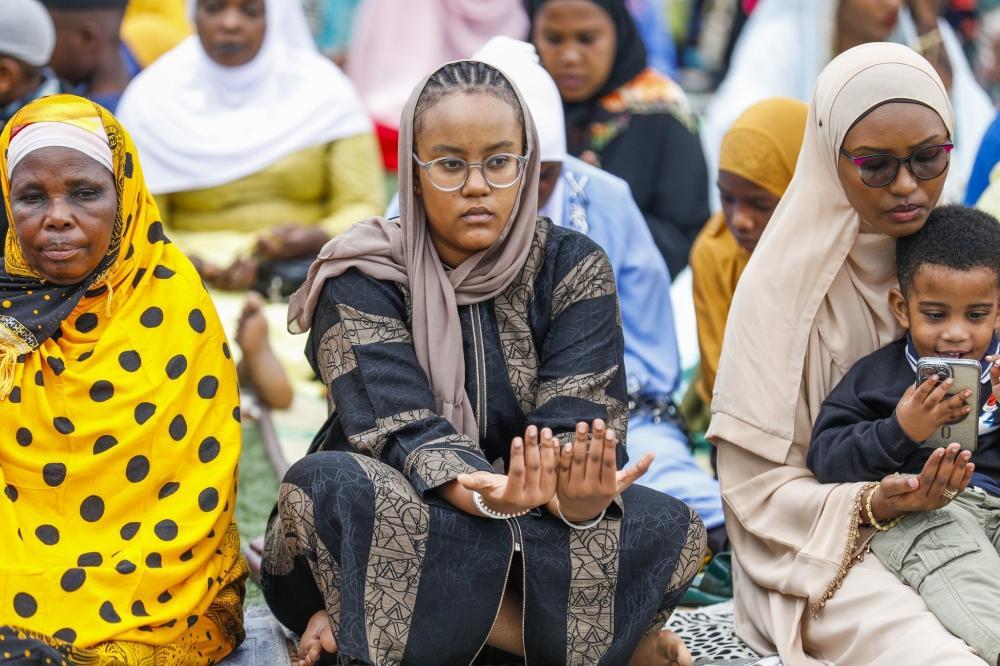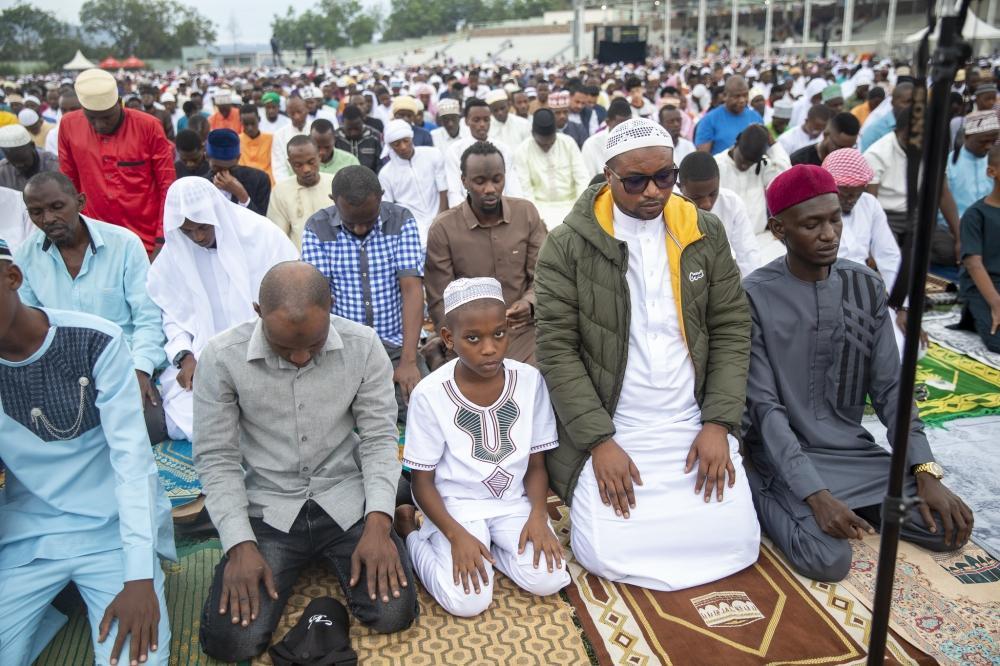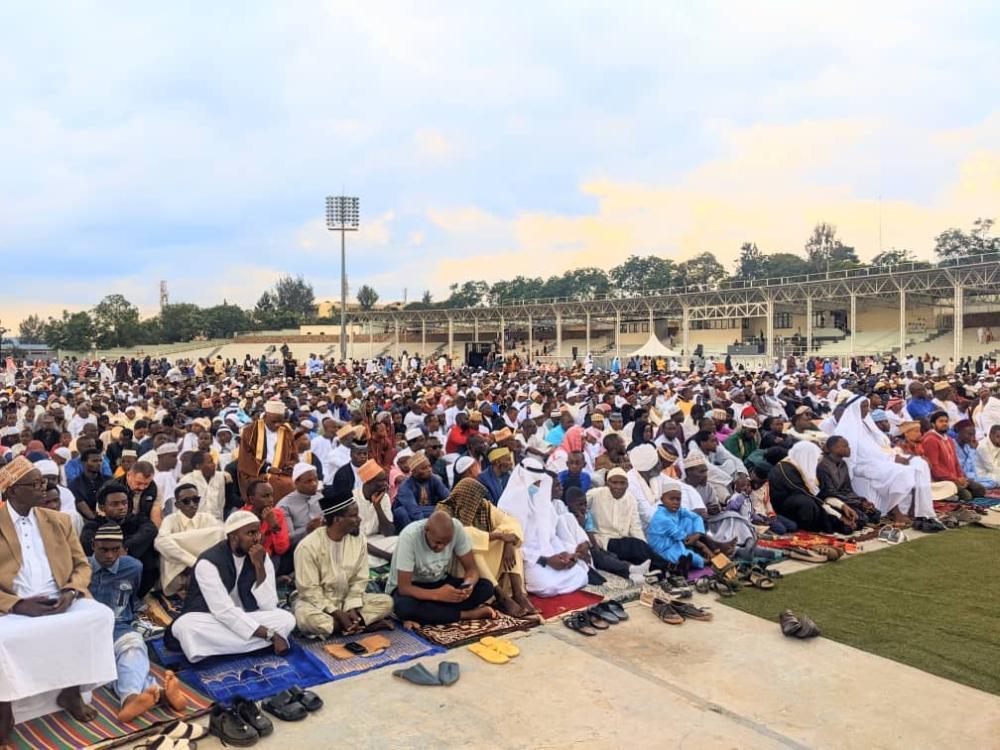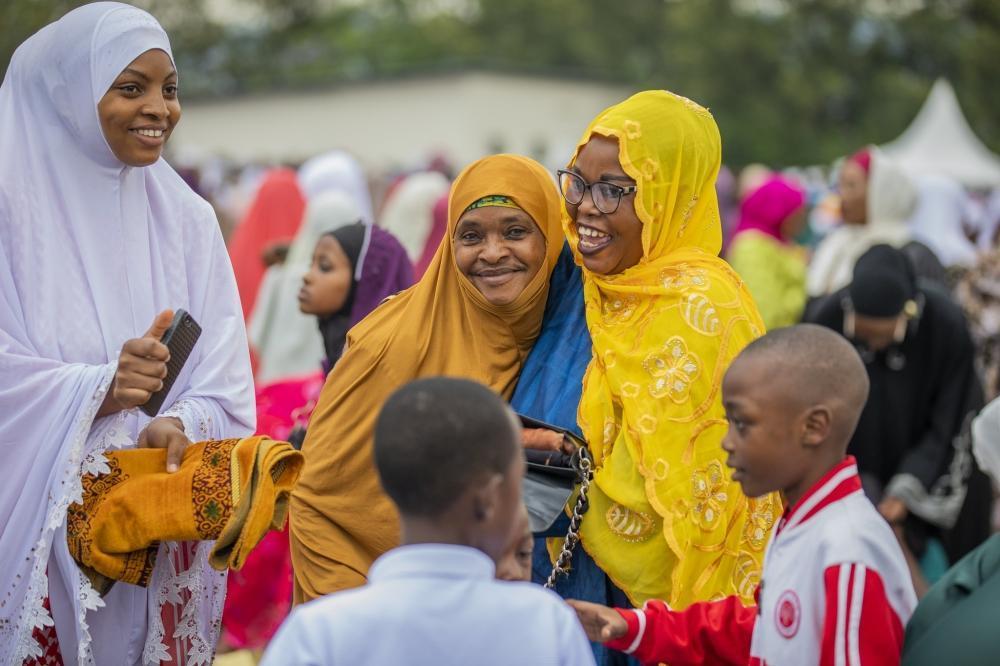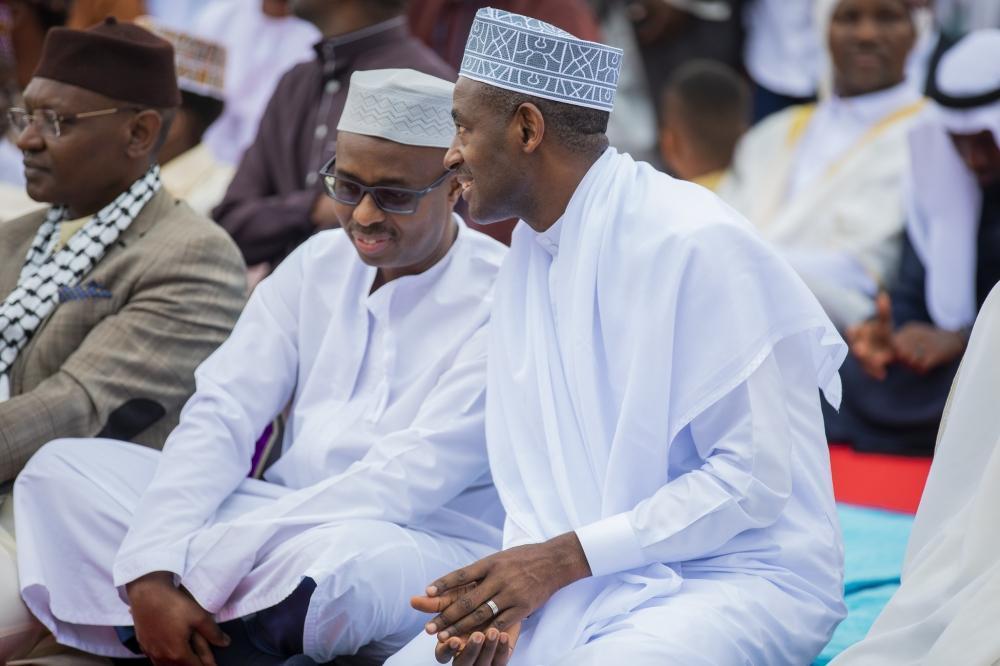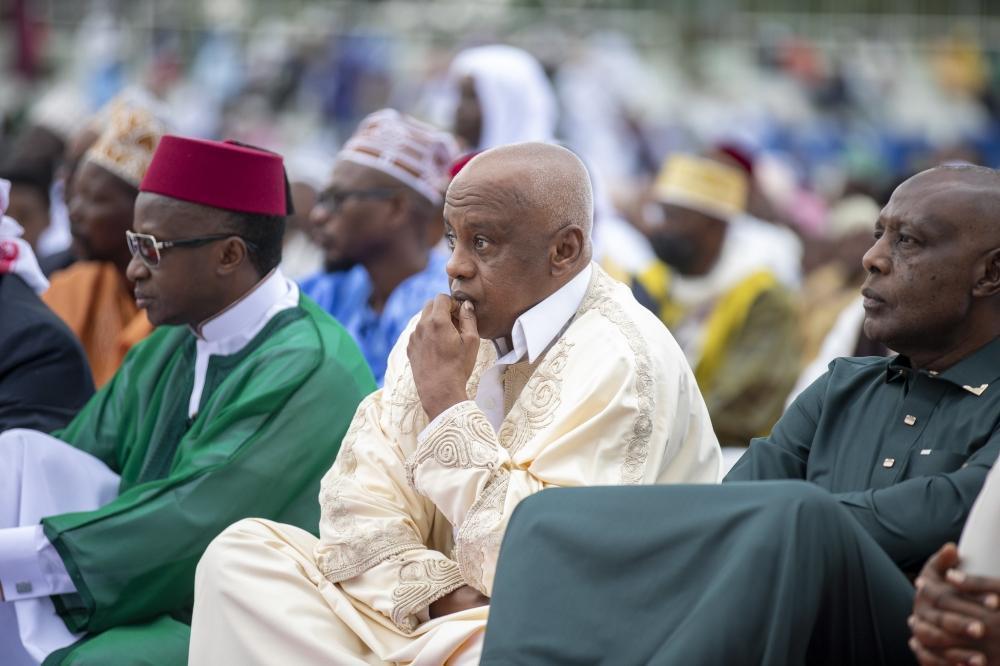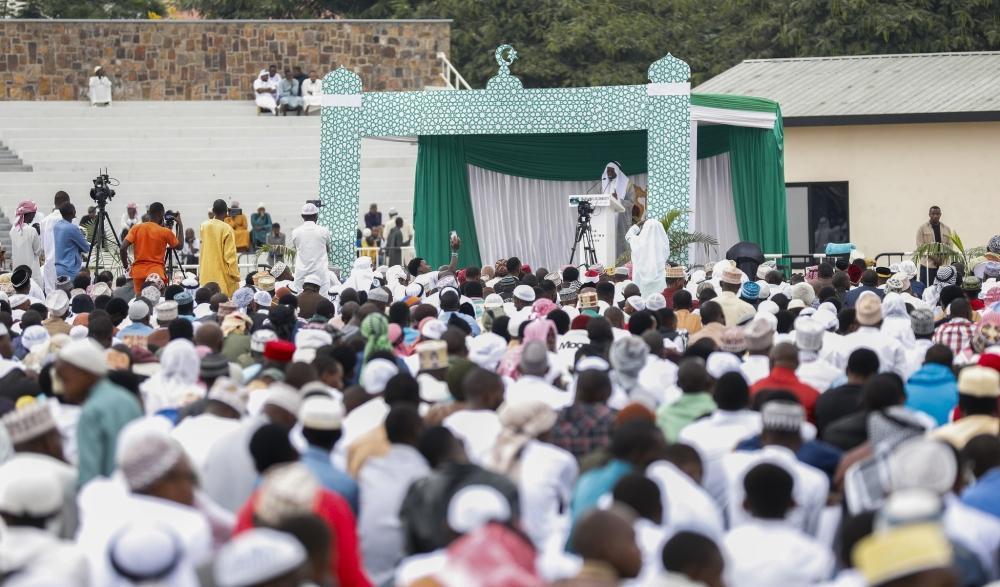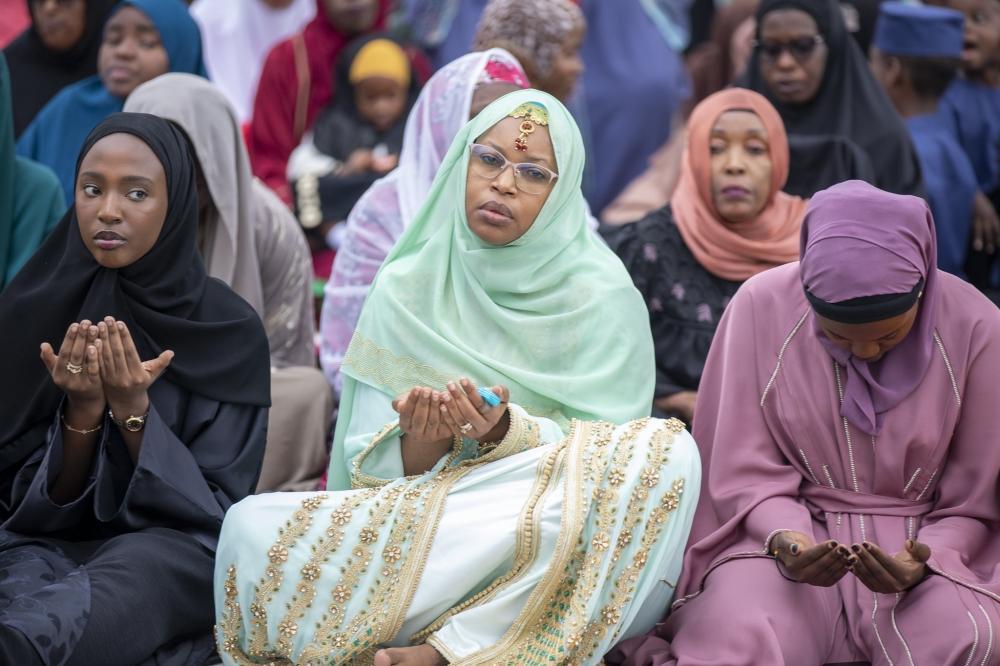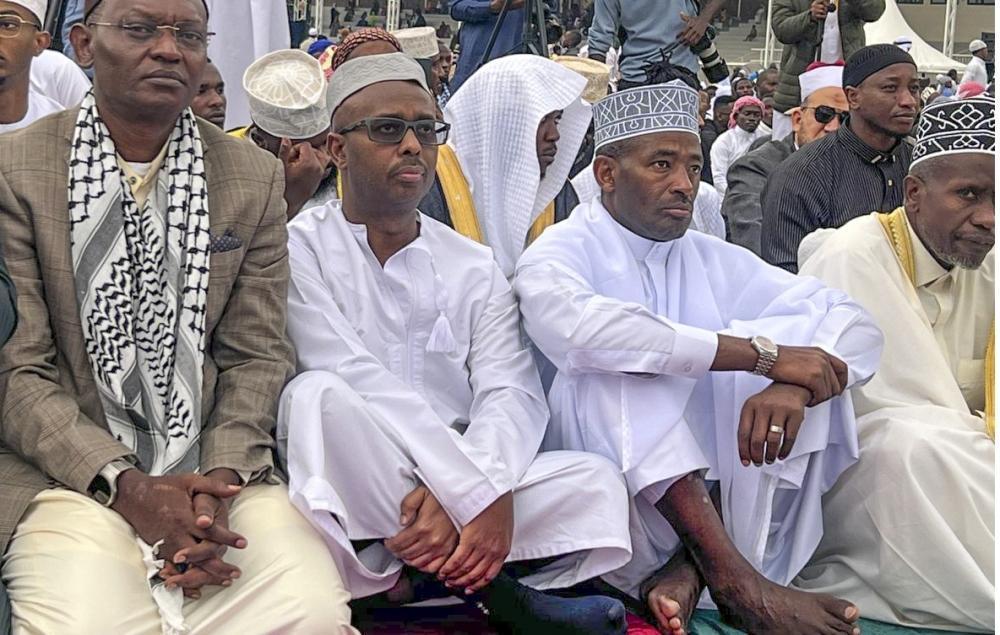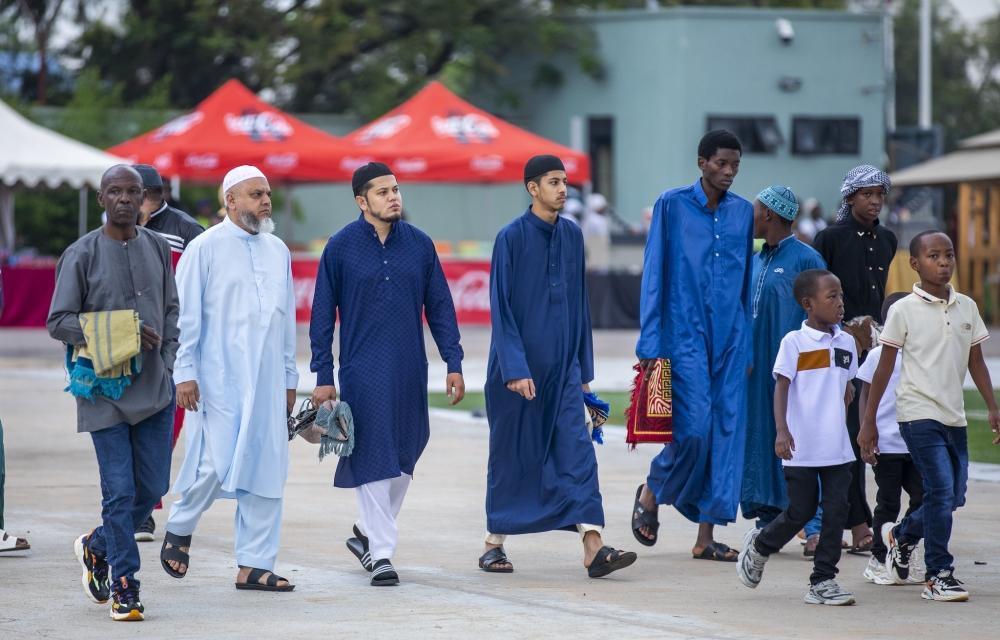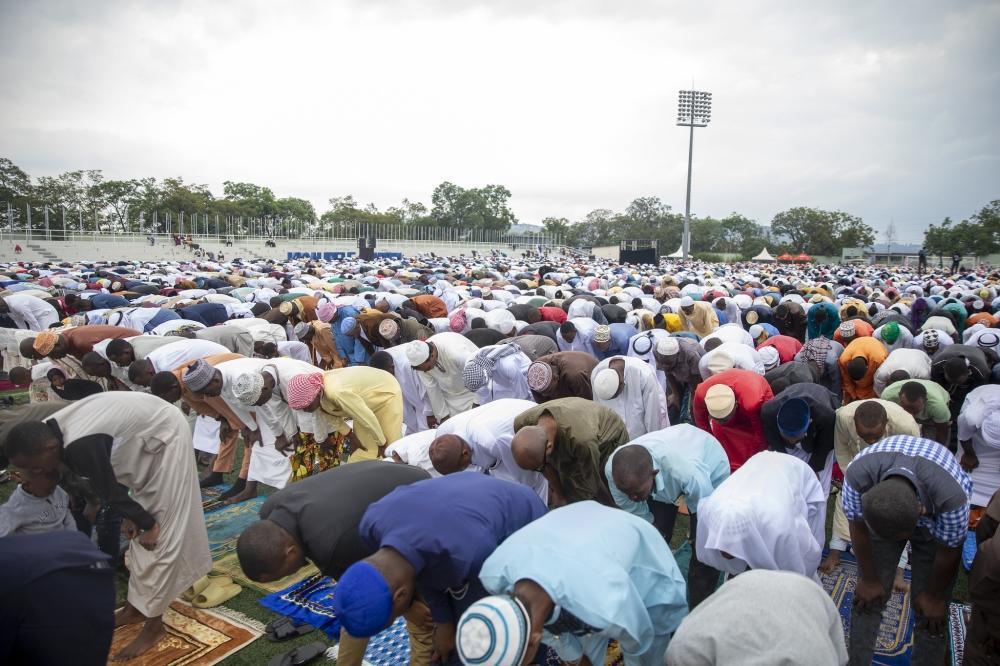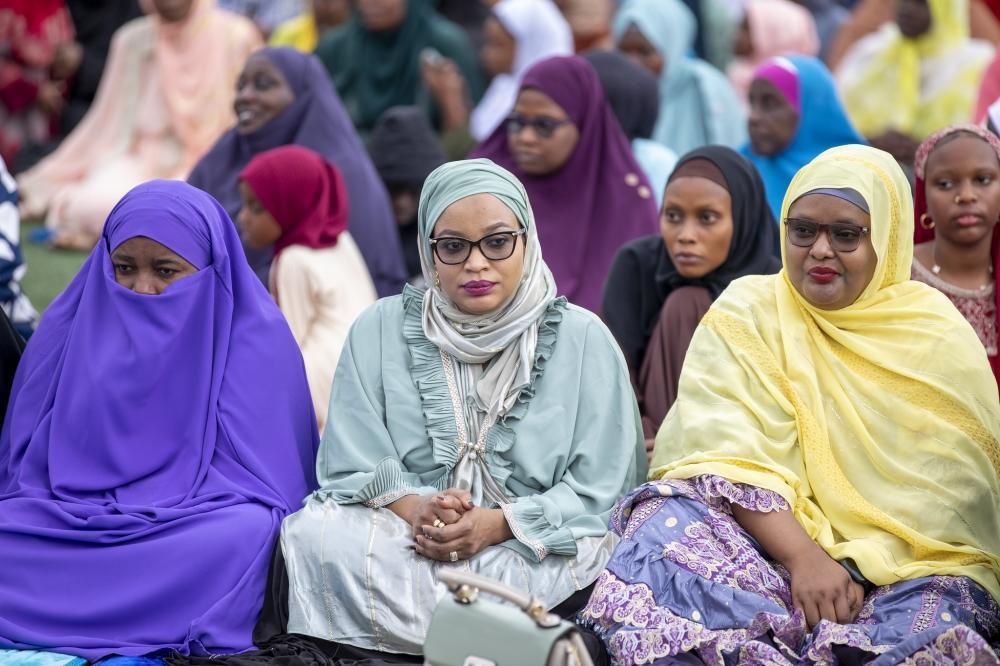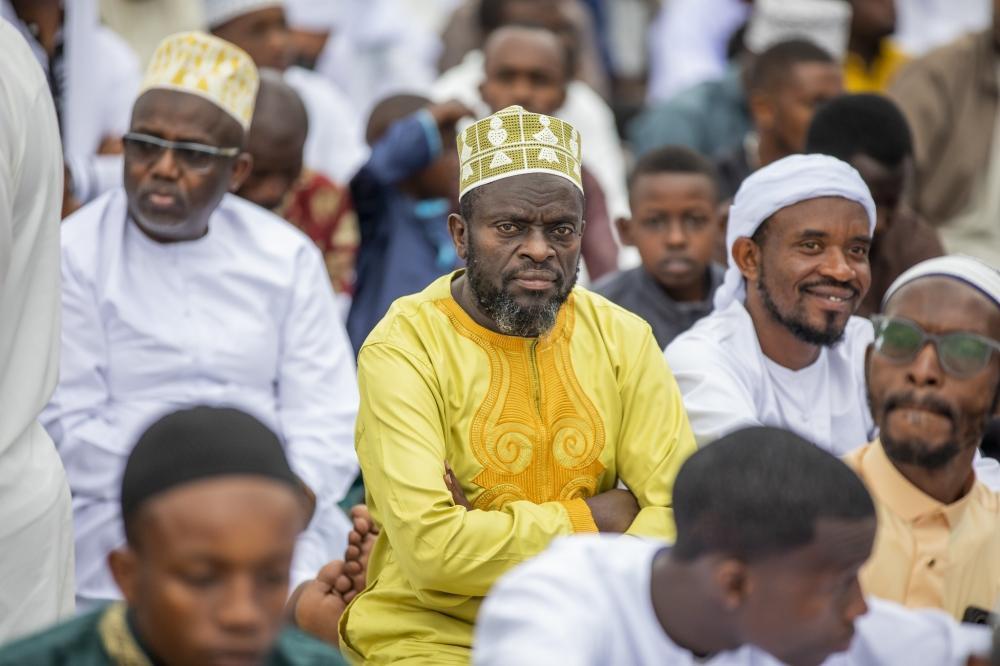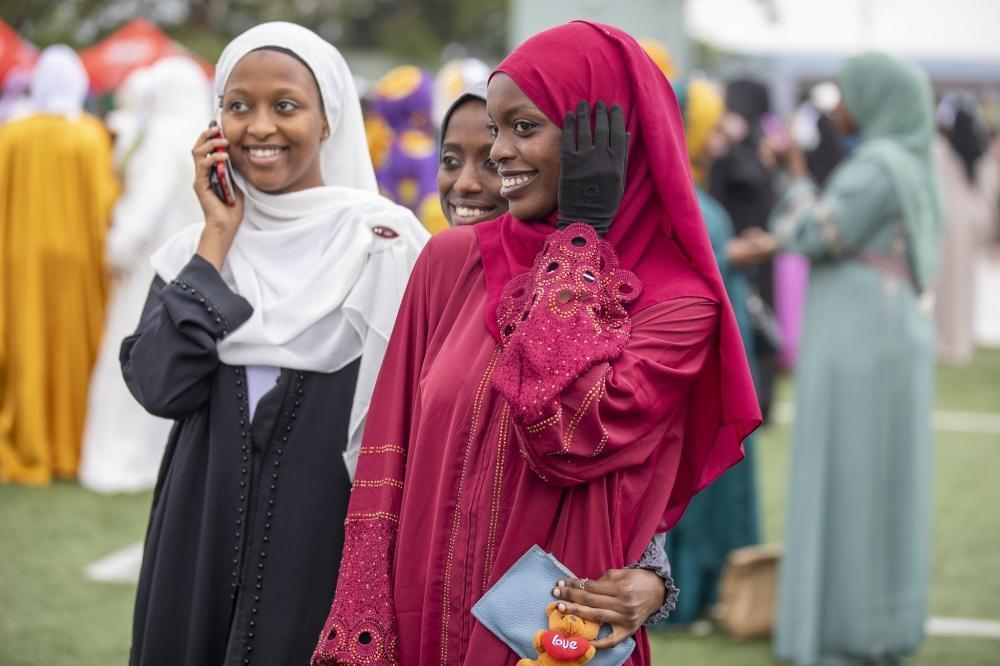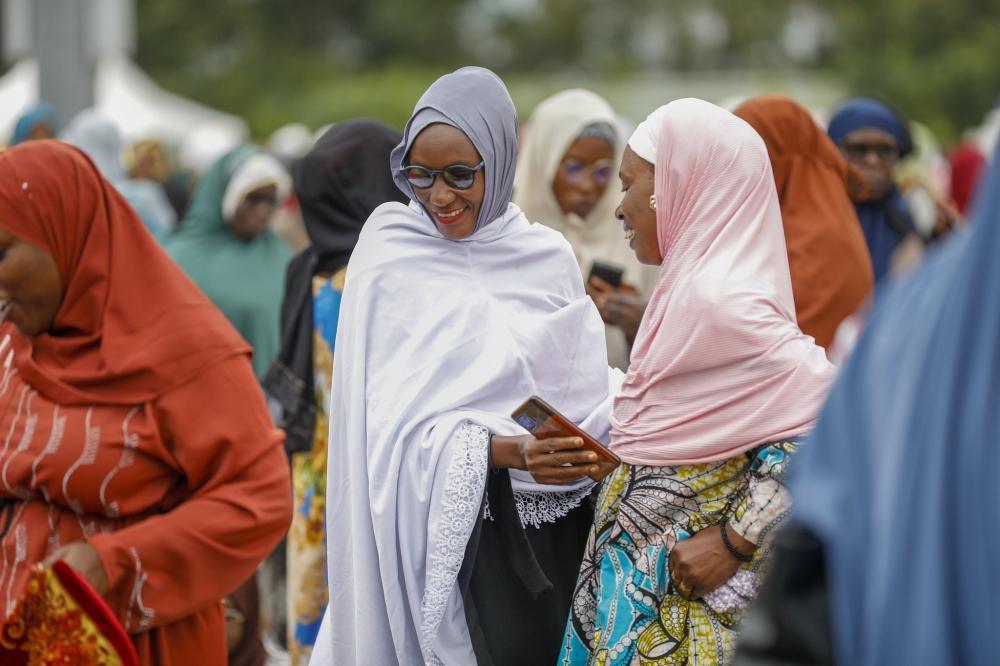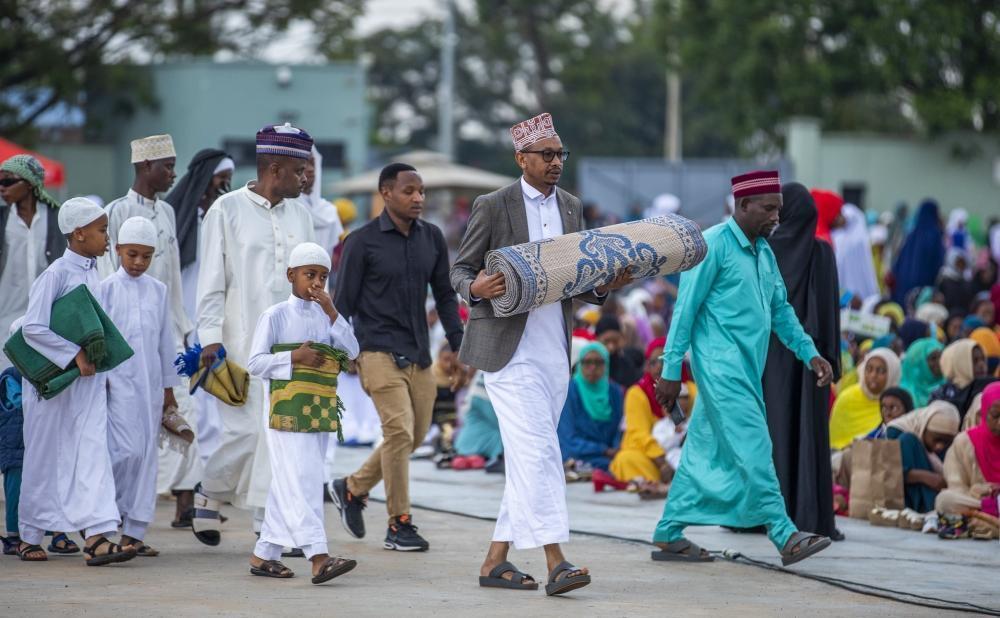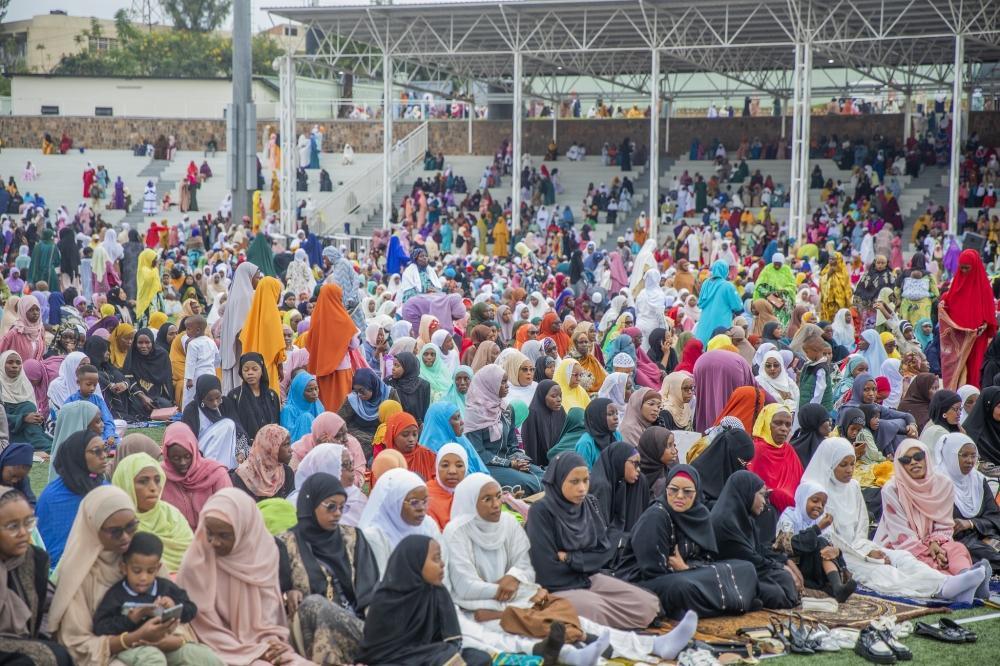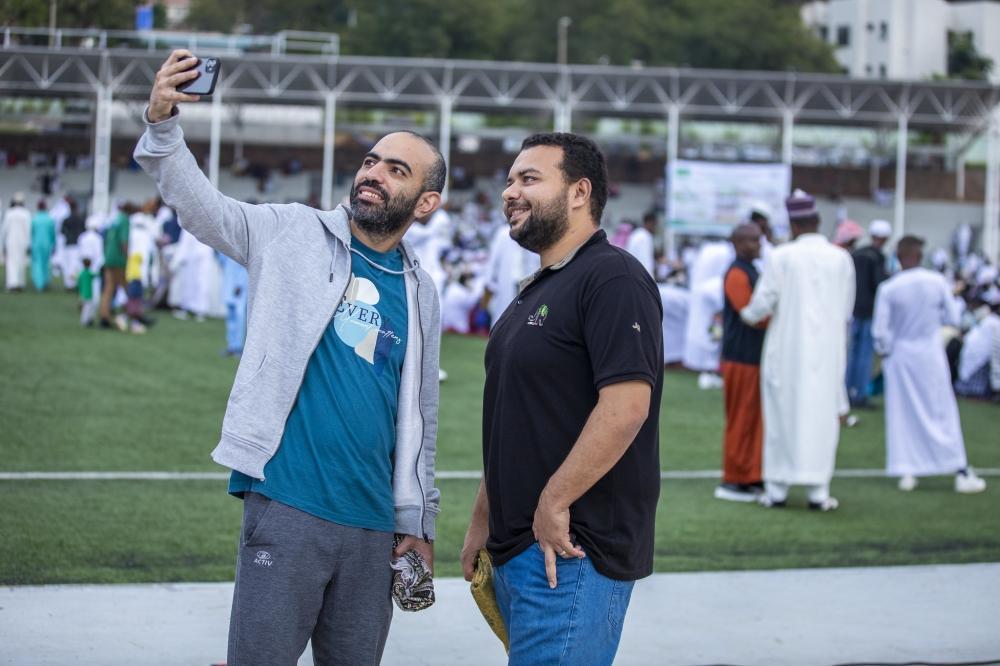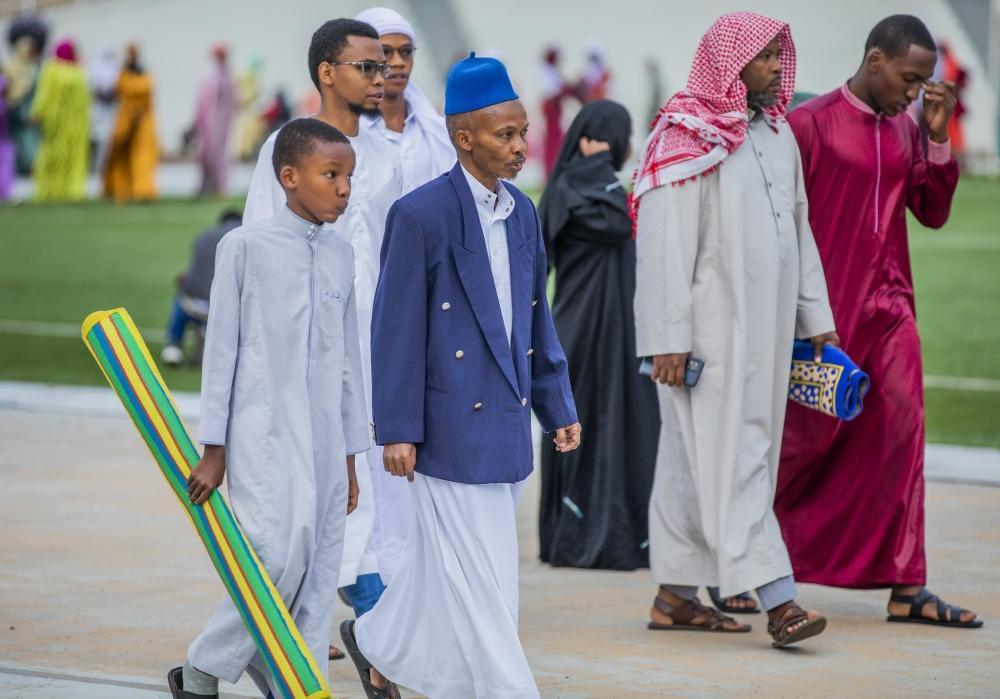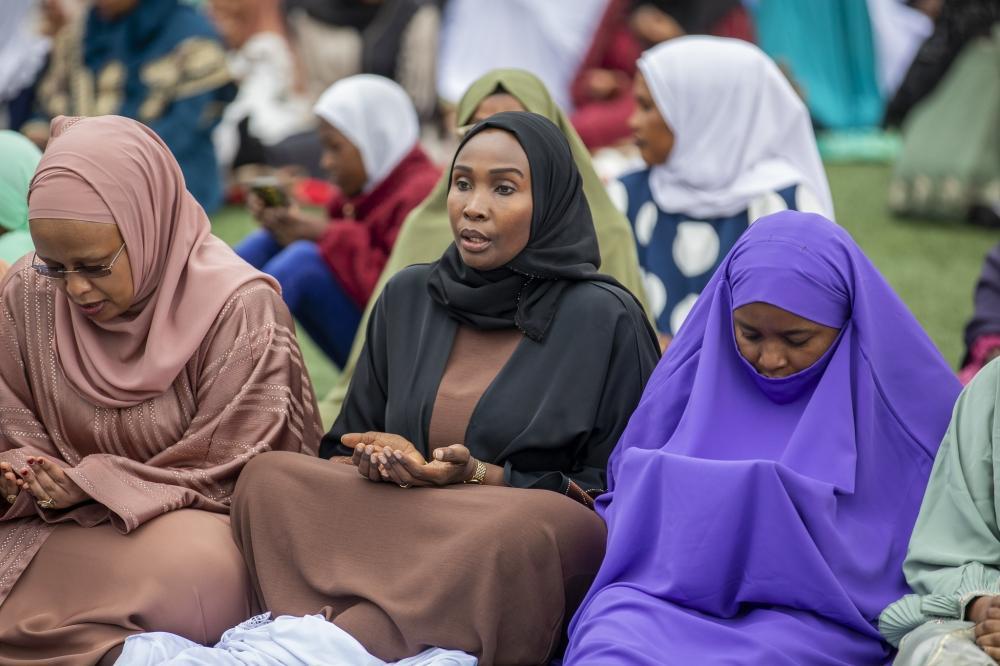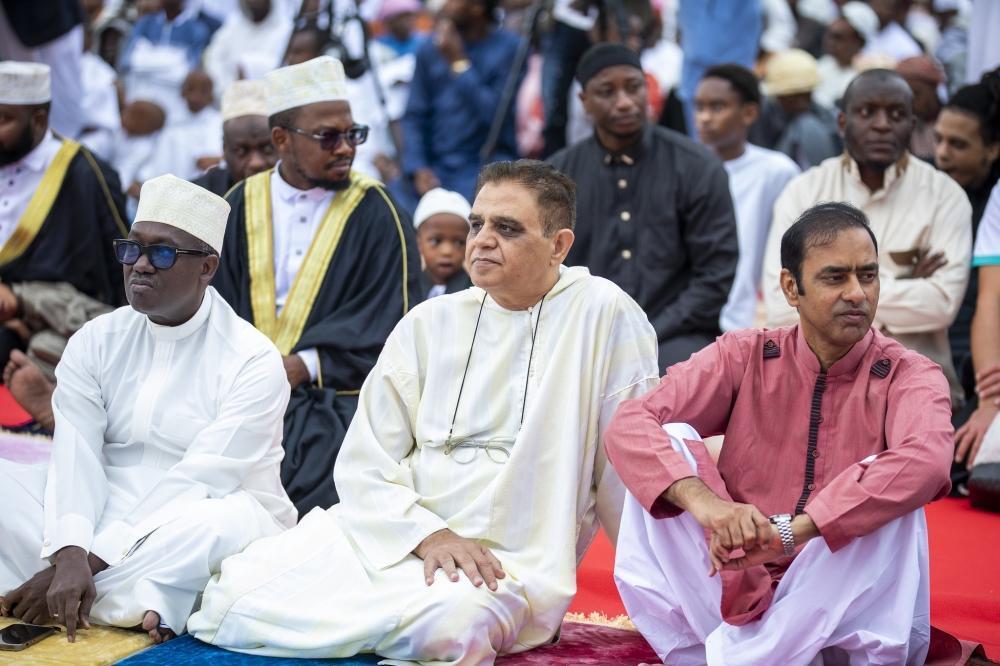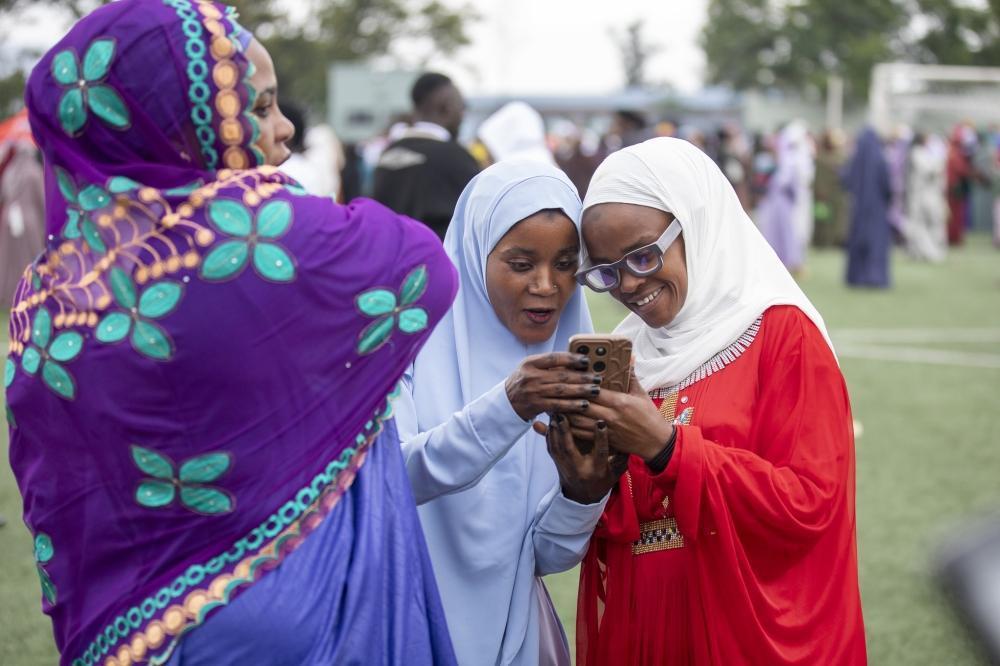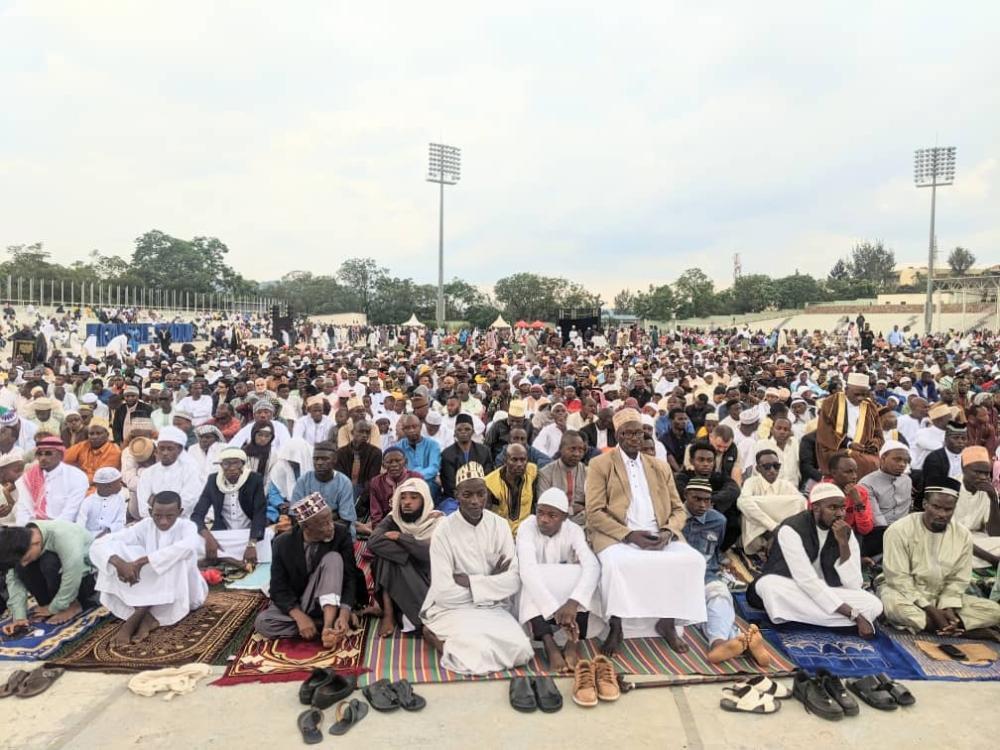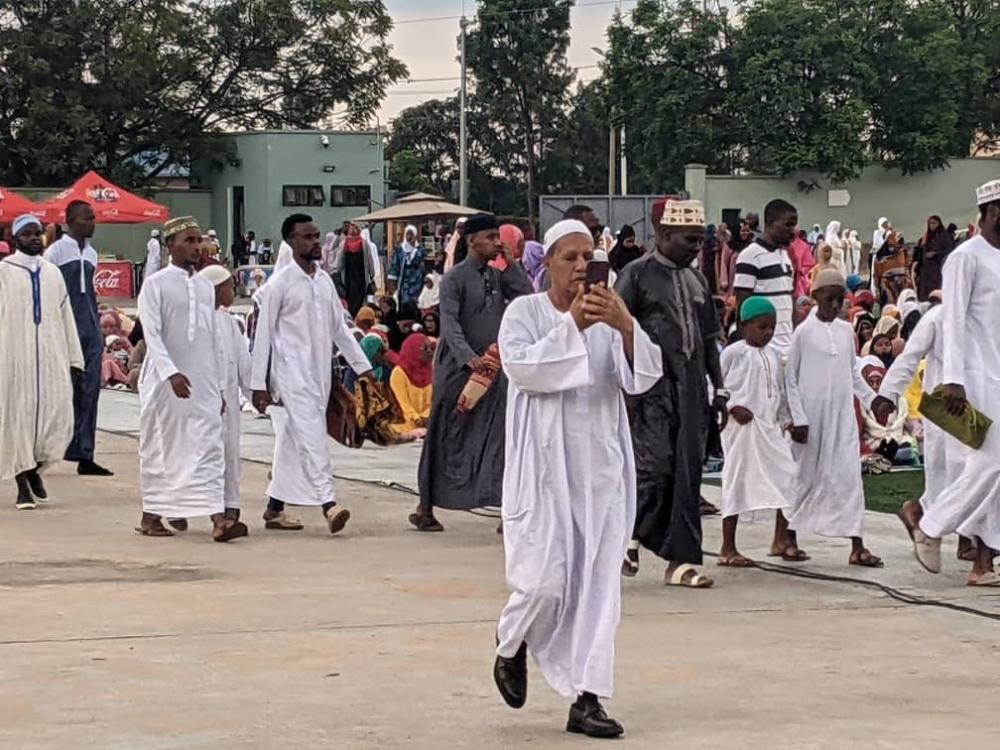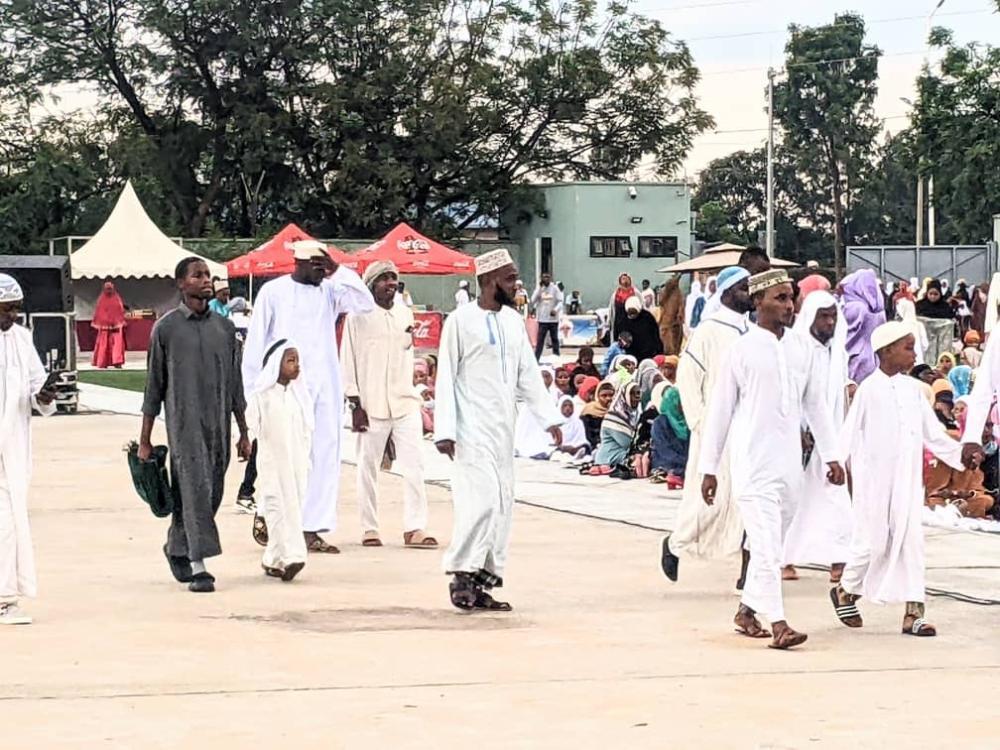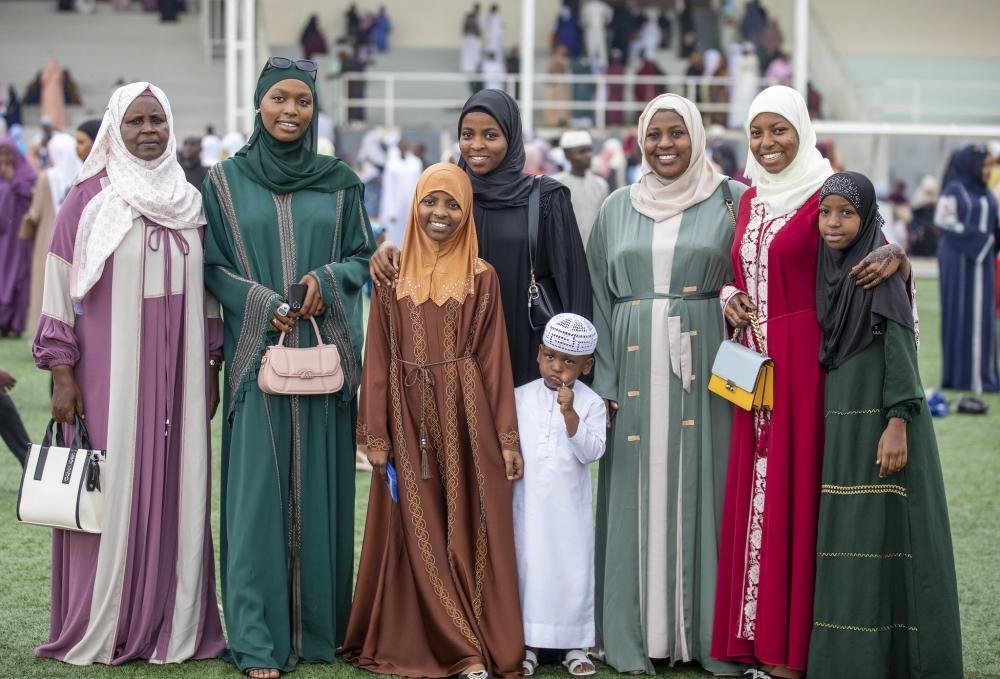Africa-Press – Rwanda. Muslims across the world on Friday, June 6, celebrate Eid al-Adha, or the Feast of Sacrifice, the second of the two main festivals in Islam alongside Eid al-Fitr.
Eid al-Adha is a major Islamic holiday that commemorates Prophet Ibrahim’s willingness to sacrifice his son and involves prayer, feasting, and acts of charity. The holiday day honours Ibrahim’s devotion to God, the struggles and faith of Hajar that led to the miracle of Zamzam, and the rebuilding of the Kaaba, the holiest site in Islam.
Every year, Muslim families across Rwanda join millions of others around the world in observing the festival with prayer, charity, and communal celebration. Determined by the Islamic (Hijri) lunar calendar, which is based on the phases of the moon, the day also marks the end of the spiritual journey in Mecca.
At national level, prayers started from 6:00 a.m. and will end at 10:00 a.m, at Kigali Pele Stadium.
Thousands of Muslims during the morning prayer to celebrate Eid al-Adha at Kigali Pele stadium. PHOTOS BY CRAISH BAHIZI
The festival marks the moment when Prophet Ibrahim was commanded by Allah in a dream to sacrifice his son Ismail as a test of faith. Just as he was about to carry out the act, Allah intervened and provided a ram to be sacrifice instead. Today, Muslims remember this story by sacrificing animals such as sheep or goats, and distributing the meat equally among family, friends, and those in need, said Yusufu Mugisha, a Sheikh based in Kigali.
“Eid al-Adha is more than an act of sacrifice, it symbolises the faith and obedience shown by Prophet Ibrahim, his son Ismail, and his wife Hajar. It also marks the end of a spiritual journey where pilgrims gather at Mount Arafat in Mecca on the Day of Arafah for prayer and reflection,” said Mugisha.
According to Islamic tradition, the Kaaba, the cube-shaped building in the center of the Grand Mosque in Mecca, was originally built by Prophet Adam as the first house of worship dedicated to one God (Allah). After being lost in the flood during the time of Prophet Nuh (Noah), it was later rebuilt by Prophet Ibrahim (Abraham) and his son Prophet Ismail, and Eid al-Adha also celebrates the rebuilding of that house.
The rebuilding of the Kaaba marked a renewal of pure monotheism. Allah commanded that it be a focal point for prayer and pilgrimage.
Eid al-Adha also marks the end of a Sa’i, a ritual performed during the Hajj and Umrah pilgrimages, involving seven trips between the hills of Safa and Marwa, a commemorative act of Hajar’s search for water for her son Ismail.
“Her faith led to the miracle of the Zamzam well, which still flows today. Pilgrims also gather at Mount Arafat on the Day of Arafah for prayer, reflection, and humility. Making this not just a celebration, but a remembrance of faith, sacrifice, and family. From the ancient building of the Kaaba to the struggle and resilience of Hajar in the desert, each element shapes the rich spiritual narrative of this Islamic holy day.”
“We also reflect on the unity that Ibrahim’s family showed when tested by God, and we take that lesson into our own homes and communities,” said Mugisha.
“In Rwanda, families typically start the day with a special prayer at the mosque as a sign of gratitude, unity, and celebration. After prayers, families come together to share meals, exchange visits, and extend kindness to others in their community. It is also customary to give money or meat to the less fortunate, ensuring that everyone can partake in the festivities.”
“The story of Ibrahim reminds us that obedience to God brings peace and provision, even when asked to sacrifice what he loved most, he trusted in God’s wisdom and God responded with mercy. Every year, we slaughter a goat or a sheep not just to follow tradition, but to share with the poor and reconnect with the values of compassion and giving,” said Jamal Nduwayezu, a muslim in Kigali.
For Aisha Mukazi, a Muslim in Gatsibo, the day serves as a reminder to honour family, serve neighbours with kindness, and seek forgiveness from both God and one another.
“On this day, I slaughter a goat and make sure to share the meat with my neighbours. I also prepare plenty of food to share with friends and family. I always take some to people at the hospital. It’s not just about the feast, it’s also about coming together, spreading kindness, and making sure no one feels left out during this special time.”
Jean Batiste Harera, a security officer at Kimironko Health Center, said that during Eid al-Adha, Muslims often bring food to those in need at the facility.
He said: “It’s a beautiful tradition that lights up everyone’s face with a smile. This act of sharing reflects the true spirit of Eid which is compassion, generosity, and bringing joy to others, especially those in difficult situations.
“Now, people from upcountry and those who’ve been here for a long time are looking forward to tomorrow, knowing they’ll have a good meal to enjoy.”
Rwanda Defence Force Chief of Defence Staff, Gen. Mubarakah Muganga (2nd right) and Minister of Finance Yusuf Murangwa (2nd Left) attend the morning prayer to celebrate Eid al-Adha, at Kigali Pele Stadium on Friday, June 6. Photos by Craish Bahizi
Thousands of Muslims during the morning prayer to celebrate Eid al-Adha at Kigali Pele stadium. PHOTOS BY CRAISH BAHIZI
For More News And Analysis About Rwanda Follow Africa-Press

